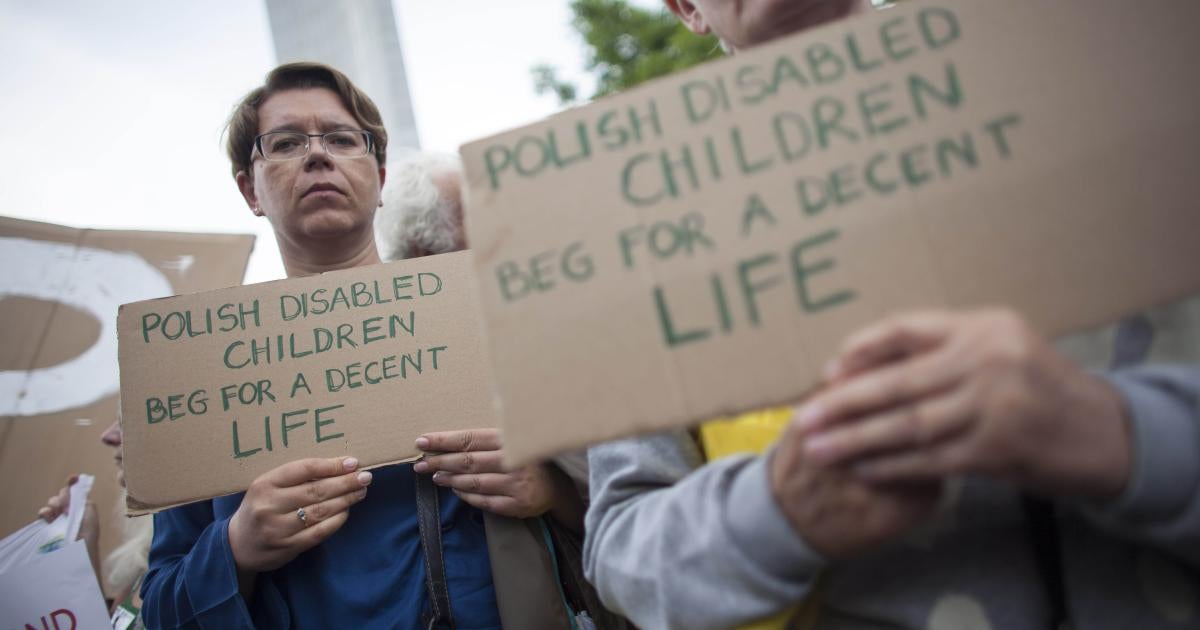“My child’s nightmare lasted about a year and a half. She was beaten and locked in a caged bed, sometimes all day or even two days.
This is how a mother described the ordeal her daughter Kasia (pseudonym) went through in a residential institution for mentally disabled girls and women in Jordanów, a small town in southern Poland. Entered two months before her 18th birthday, when Kasia was taken out of the facility almost two years later, her family said she was barely able to speak or walk, a side effect of the drugs she was receiving .
According to a report by the Polish news site Wirtualna Polska, many women and girls were victims of abuse and neglect in this institution which, at the time of the report, was run by an order of Catholic nuns, the Sisters of the Presentation. of the Blessed Virgin Mary. , and had 47 inhabitants. Girls as young as 13 and women with disabilities were beaten with a mop, kicked, left outside in the cold without shoes as punishment, insulted and humiliated. The abuse came to light after former staff and parents spoke out.
Abuses in institutions like this are not isolated cases. Human Rights Watch has documented neglect and abuse in residential institutions for persons with disabilities around the world, including in Armenia, Brazil, Croatia, Ghana, India, Indonesia, Kazakhstan, Kyrgyzstan, Russia, and Serbia. In more than 60 countries, hundreds of thousands of men, women and children with disabilities, some as young as 10, have been shackled – shackled, bound or confined in confined spaces – simply because they have a disability.
Local authorities have opened an investigation into the alleged violations at the Jordanów facility and, while the investigation is ongoing, have handed over management to another provider.
While this response is welcome, much more needs to be done to end the practice of locking up people with disabilities in Polish institutions. Poland, which is one of 185 states that have ratified the UN Convention on the Rights of Persons with Disabilities, should develop a time-bound plan to gradually close institutions and invest in community services that help people live independently in their communities.
The Sisters of the Presentation of the Blessed Virgin Mary, along with the Catholic Church at large, should monitor all residential institutions under its authority to ensure that persons with disabilities are not chained, beaten or otherwise subjected to form of abuse, and guarantee the rights of persons with disabilities. training of its institutional staff.
“I’m sure there are many more places like this, many children suffering like this, but nobody cares. These kids are screaming behind closed doors,” Kasia’s mother said. It is high time for governments, including Poland’s, to hear these cries, move away from a system of isolation and abuse and build a system of support and independence.

